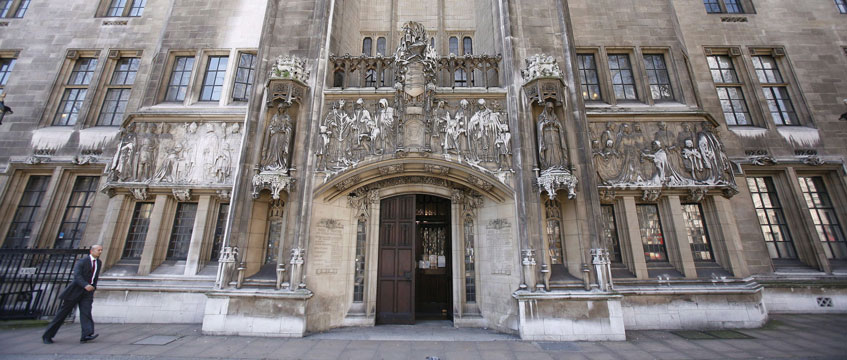Supreme Court mulls boundary dispute about adverse possession
Judges at the Supreme Court are considering their ruling in a boundary dispute that could have major implications for the application of the law of adverse possession.
Under the rules of adverse possession, a person can claim ownership of another person’s land if they have used it, under certain conditions, for 10 years. One of the conditions is that, for that period, the person using the land had a “reasonable belief” it was theirs.
The issue in this case, Brown v Ridley, is how the 10 year period should be defined; as any period of 10 years, or a period of 10 years immediately before the user of the land takes legal action to take formal ownership.
Judges at the Supreme Court are considering their ruling in a boundary dispute that could have major implications for the application of the law of adverse possession.
Under the rules of adverse possession, a person can claim ownership of another person’s land if they have used it, under certain conditions, for 10 years. One of the conditions is that, for that period, the person using the land had a “reasonable belief” it was theirs.
The issue in this case, Brown v Ridley, is how the 10 year period should be defined; as any period of 10 years, or a period of 10 years immediately before the user of the land takes legal action to take formal ownership.
The case was heard last week in front of Supreme Court judges Lord Briggs, Lord Stephens, Lord Hamblen, Lady Rose and Lady Simler.
The case centres on a property called Valley View in County Durham and has been brought by the owners Richard and Louise Ridley. The Ridleys bought the property in 2004. A previous owner in the 1980s built a boundary fence that encroached on a neighbour’s property.
In 2018 the Ridleys were granted planning permission to build a new house on their land. The house was completed in 2020.
When construction work started their neighbour Alistdair Brown, who moved there in 2002, checked the planning records and discovered that part of the house was being built on land that, according to the land registry, was his. In October 2019 he gave notice that he considered the new house to be in breach of the Party Wall Act.
In December the Ridleys applied to the Land Registry and asked to be registered as owners of the land on the basis of adverse possession since 2004. The Land Registry could not resolve the case so sent it to the courts for a decision.
Lawyers for the Ridleys argue that the statute requires them to prove any consecutive 10 years of use to get adverse possession. Therefore, they say, they should be given the land.
Lawyers for Brown argue that the statue requires the Ridleys to prove 10 years of use up to their request to the Land Registry to update the register. They say, as Brown notified the Ridleys the land was his before they went to the Land Registry, they should not be given the land.
The First-tier Tribunal backed the Ridleys. The Upper Tribunal, on appeal, backed Brown. The case was sent directly to the Supreme Court for a definitive decision.
Oliver Radley-Gardner KC, a barrister at Falcon Chambers, said in an interview that it is a point that needs sorting out. Whichever way the judges decide, there are likely to be repercussions.
If the judges say that claimants need to prove 10 years of use up to the point of seeking to get the register amended, claimants will be incentivised to move quickly to asset their ownership.
Radley-Gardner said: “That could lead to an enhanced risk of property litigation.”
It will also likely lead to legal action against conveyancing solicitors who failed to spot the potential for a dispute when the property was transferred.
If the Ridleys are right, and claimants have to prove any consecutive 10 year period of use, legal disputes might come to rest on complicated investigations into decades-old documents and shaky recollections, Radley-Gardner added.
“While the case itself rests on quite a narrow point of construction, it has ramifications for something that homeowners deal with every day,” he said. “Boundaries.”
At the end of the hearing, Supreme Court judge Lord Briggs thanked the lawyers for their submissions on an “interesting and relatively new area of law”.
He said: “It will come as no surprise that we will take time to consider our judgement.”
Brown (respondent) v Ridley and another (appellants)
Supreme Court, 21January 2025
Richard Lewis/EPA/Shutterstock











